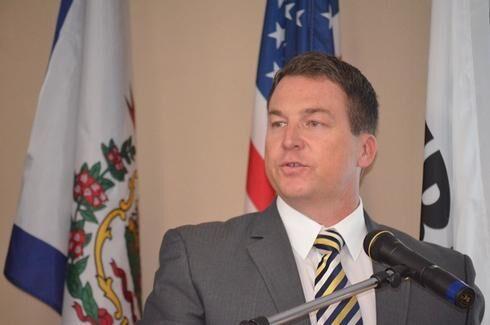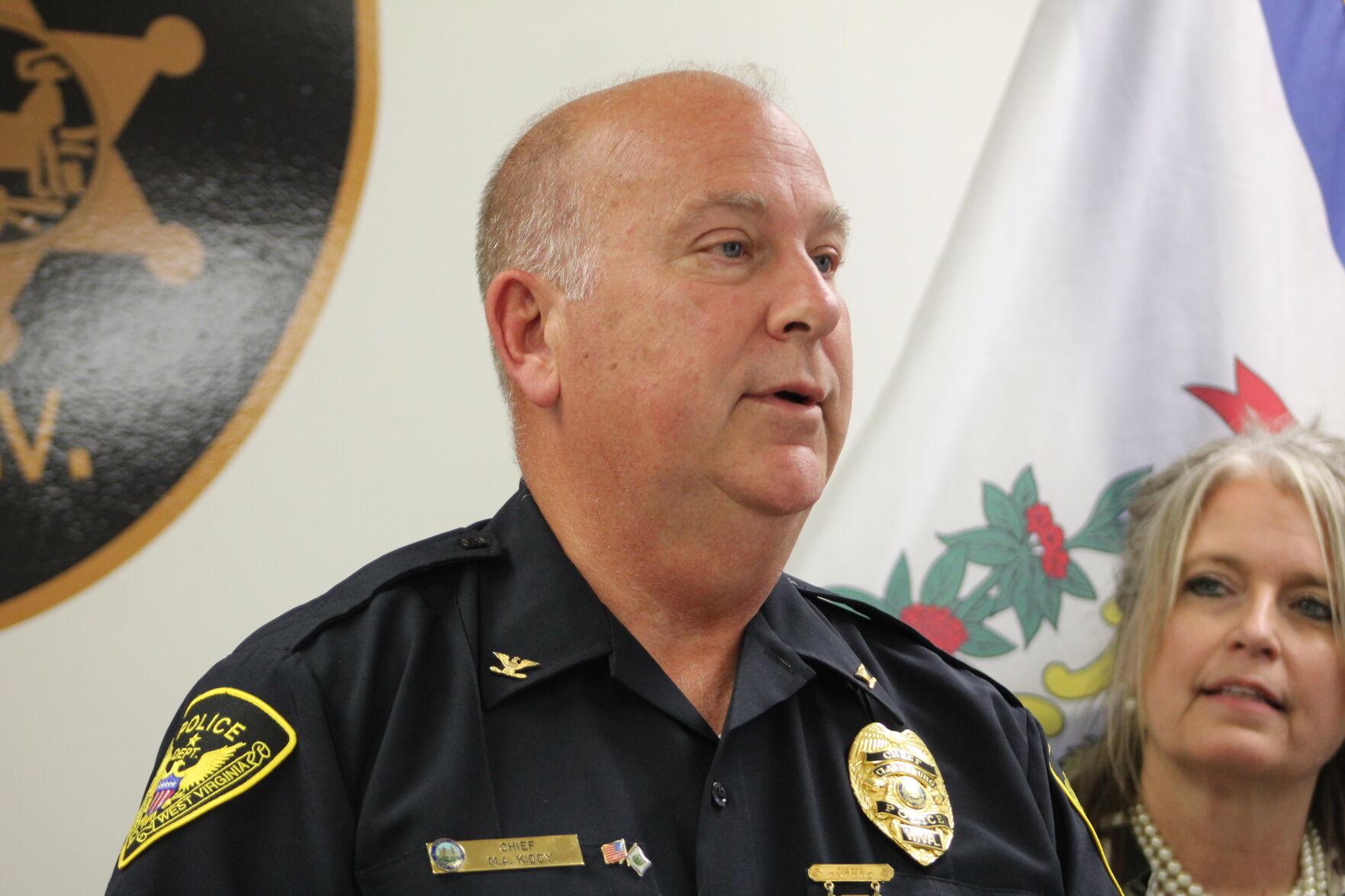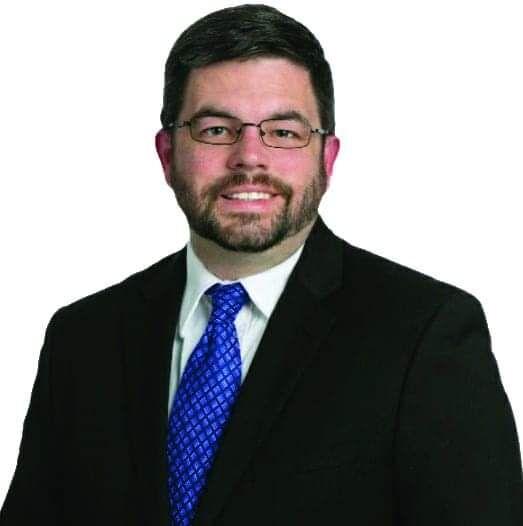

BRIDGEPORT, W.Va. (WV News) — Members of the Harrison County business community, government and other community shareholders met with their state lawmakers at the Bridgeport Conference Center on Tuesday to voice their concerns ahead of the upcoming 60-day legislative session.
Improving access to child care and bolstering energy production were among chief concerns, but so was a presidential executive order to pause the disbursement federal grants and loans for 90 days.
The order was temporarily blocked by a federal judge later Tuesday, but it could be reinstated next week.
“Good projects are already funded. I don’t believe good projects are going to be hindered in any way. And if they are and if grants get cut, the buck stops at the state too,” said state Sen. Ben Queen, R-Harrison.
Dr. Shana Nicholson, director of grant programs and community development for Clarksburg, first brought up concerns about the executive order, which were seconded by Nancy Parks, interim associate vice president of student services at Pierpont Community & Technical College.
Their concerns stemmed from federal grants for upcoming projects and the future of Pell grants, which provide financial assistance for higher education.
Chuck Flannery, a representative of Sen. Shelley Moore Capito, R-W.Va., was unable to give a definite answer on the future of federal grant funding.
But Flannery emphasized that it is currently only a 90-day freeze.
Still, Flannery said, he is monitoring the “very broad” freeze closely.
On the issue of Pell Grants, he said the freeze would not affect grants that had already been received.
Queen said he was invested in making sure projects that create new jobs, whether via expanding existing businesses or establishing new ones, go forward.
Queen said he’s excited about the potential construction of a natural-gas-fired power plant in Harrison County, which would be the first in the state.
“We’re an energy state. We’re all proud of it — shoot, even the Democrats are proud of it. We take advantage of what we have under our feet. This is a massive economic development opportunity for the state,” he said.
Queen urged those in attendance to work with Capito’s staff and that of Sen. Jim Justice, R-W.Va., to make their voices heard on the national level.
He also spoke about the freeze as an opportunity for community developers to practice their lobbying skills.
“This is a great opportunity for people to become passionate about their projects and speak to Congress,” Queen said. “I agree with the (national) administration that we should look at almost everything coming down the pipe.”
Del. Mickey Petitto remained committed to finding funding for firefighters and EMS personnel and she also talked about providing funding to the city of Clarksburg for statues of first responders.
Del. Clay Riley talked about the possibility of ending public hearings for bills at the state Legislature and talked about the benefits of being able to give written testimony for the legislative record instead of having less than a minute to speak about an issue.
The Legislative Preview Luncheon is a long-standing event that the Harrison County Chamber of Commerce has hosted for more than 25 years, said Chamber President Kathy Wagner who started at the chamber that long ago.
“We think it’s important for the businesses to know who their delegates are to be in contact with them, to know how to get a hold of them when they have issues, and to be able to talk about what’s concerning to their business,” Wagner said.
BRIDGEPORT, W.Va. (WV News) — The members of North Central West Virginia Airport’s governing body approved the sale of a 2.6-acre plot of land to the state on Tuesday.
The plot is intended to serve as the site of a new facility for Pierpont Community & Technical College’s Aviation Maintenance Technology Program, but the future of the project now rests with decision-makers in Charleston.
Following a closed-door executive session, the members of the Benedum Airport Authority voted to authorize the sale, which will be subject to approval from the Federal Aviation Administration.
“The board has done our due diligence and has agreed to move forward,” said Airport Director Rick Rock.

Rock
The West Virginia Legislature approved a $25 million allocation for construction of the Pierpont facility in August 2023. The funding and the project were celebrated by then-Gov. Jim Justice during a bill signing at Pierpont’s current facility in Bridgeport.
Following the ceremonial signing, there no was concrete progress on the project for more than year. The lack of progress led some local stakeholders to wonder if the project would happen at as originally envisioned, if at all.
David Hinkle, president of the BAA, a member of the Harrison County Commission and chair of Pierpont’s board of directors, said Tuesday’s action allows the state to buy the land, but doesn’t guarantee anything.
“The state has the right to exercise the option,” he said.
There is little else local stakeholders can do to help the project progress, Hinkle said.
“It’s strictly the state,” he said.
He remains hopeful the project will come to fruition, Rock said.
“Let’s continue on down the path and get the ball rolling,” he said. “We know that aerospace industry is vital to economics of West Virginia and Pierpont is what develops the workforce to continue to go that. So we hope that they continue to move forward and get it done.”
Pierpont’s aviation program has long been an important source of workforce development for the aerospace businesses on the campus of North Central West Virginia Airport such as Boeing subsidiary Aurora Flight Sciences, Lockheed Martin and MHIRJ.
Students can earn a degree in Aviation Maintenance Technology, allowing them to pursue well-paid aerospace industry careers such as airframe maintenance mechanic, avionics technician and aviation maintenance director.
The program is currently operating at capacity and has outgrown its current location. The new facility would allow the program to expand from 130 to 200 students per class, according to officials.
As originally described, the new 70,000-square-foot Pierpont facility would occupy around six acres in the new West Virginia AeroTech Park, where the airport’s recently completed terminal building is located.
The proposed design features two high bay hangars, aviation-related specialty labs, including shops for turbine and reciprocating engine overhauls, flight controls and hydraulics, lecture classrooms and a learning resource and testing center.

Gov. Patrick Morrisey uses a whiteboard to explain his view of the state’s budget during a press conference Tuesday.
CHARLESTON, W.Va. (WV News) — Gov. Patrick Morrisey made his final Cabinet appointments Tuesday during a press conference at the state Capitol.
Jim Seward will serve as adjutant general of the West Virginia National Guard; Ryan Kennedy, former mayor of Clarksburg, will serve as secretary of veterans affairs; and Jim Mitchell will serve as superintendent of West Virginia State Police.
Additionally, the governor announced several staff appointments and provided additional details about the projected deficit for Fiscal Year 2026 he has previously discussed.
“There’s a mountain of financial challenges that we’re going to tackle,” he said. “We’re going to fix as much as we can about the structural deficit, and we’re going to leave so much goodness that you’re going to be able to measure it.”
While the governor has said the state is facing a $400 million structural budget deficit for Fiscal Year 2026, other state leaders have raised questions about the accuracy of his claims.
Following a press conference in which Morrisey announced his perspective on the budget, House Speaker Roger Hanshaw, R-Clay, sent an email to delegates commenting on the governor’s findings.
“Please know that as of now, we have no idea how he or his team arrived at that figure, and our House Finance staff and our own budget team has no information on how the governor’s team arrived at their projection,” Hanshaw wrote. “As of last month, the executive branch reports to us showed a very different picture, so we need to understand what facts gave the new administration their substantially altered view of the State’s financial condition.”
Morrisey, on Tuesday, said additional details will be included in the budget proposal he will submit to the legislature on Feb. 12.
“As you’ll see on Feb. 12 when we provide the formal budget, everything we say is going to get backed up,” he said. “Third grade math would understand what we’re doing.”
Morrisey said he wants to provide state residents with “facts” about the state’s finances.
“This is not going to be disputable information,” he said.
Despite facing what the governor says are budget issues caused by a reliance on “one-shot money” to make regular payments, Morrisey emphasized he does not intend to raise taxes.
“West Virginians’ tax burden is high enough,” he said. “I’m not looking for tax increases to solve these problems.”
Morrisey later clarified the governor’s office will target the Department of Homeland Security and the adjutant general for his administration’s ongoing efforts to consolidate executive departments.
“It is my intent to consolidate the role of the TAG (the adjutant general) and Homeland Security,” Morrisey said. “This is how the state had operated for a long period of time; you may remember when it used to be DMAPS, (Department of) Military Affairs (and Public Safety).
“We’re looking at ways to bring that back together and ultimately to generate not just cost savings but bring new management efficiencies to bear.”
Previously, Morrisey has said he intends to combine the Departments of Commerce and Economic Development, as well as combine the Department of Arts, Culture and History and the Tourism Department.
WASHINGTON — A federal judge on Tuesday temporarily blocked a push from President Donald Trump to pause federal funding while his administration conducts an across-the-board ideological review to uproot progressive initiatives.
The order capped the most chaotic day for the U.S. government since Trump returned to office, with uncertainty over a crucial financial lifeline causing panic and confusion among states, schools and organizations that rely on trillions of dollars from Washington.
U.S. District Judge Loren L. AliKhan blocked the funding freeze only minutes before it was scheduled to take effect. The administrative stay, prompted by a lawsuit brought by nonprofit groups that receive federal money, lasts until Monday afternoon. Another court hearing is scheduled that morning to consider the issue.
The White House did not immediately comment on the order, which leaves unresolved a potential constitutional clash over control of taxpayer money. Democrats who have struggled to gain a foothold during Trump’s second term unleashed on the Republican president, describing his actions as capricious and illegal.
Administration officials said the decision to halt loans and grants was necessary to ensure that spending complies with Trump’s recent blitz of executive orders.
The Republican president wants to increase fossil fuel production, remove protections for transgender people and end diversity, equity and inclusion efforts.
But a vaguely worded memo issued by the Office of Management and Budget, combined with incomplete answers from the White House throughout the day, left lawmakers, public officials and average Americans struggling to figure out what programs would be affected by the pause. Even temporary interruptions in funding could cause layoffs or delays in public services.
“This sort of came out of the blue,” said David Smith, a spokesperson for the Shawnee Mission School District in Kansas, one of countless districts that receive federal funding. Now they’re trying to figure out what it means “based on zero information.”
Democrats argued that the president had no right to unilaterally stop spending money appropriated by Congress. Just minutes after AliKhan made her ruling, Democratic attorneys general from 22 states and the District of Columbia filed their own lawsuit seeking to block and permanently prevent the administration from cutting off federal funding.
“There is no question this policy is reckless, dangerous, illegal and unconstitutional,” New York Attorney General Letitia James said.
AliKhan, who was appointed by President Joe Biden, questioned how much the details of the funding freeze had been nailed down as she issued her order.
“It seems like the federal government currently doesn’t actually know the full extent of the programs that are going to be subject to the pause,” she said.
Jessica Morton, an attorney for the National Council of Nonprofits, which brought the suit, said the group has tens of thousands of members around the country who could be affected.
“Our client members have reported being extremely concerned about having to shutter if there’s even a brief pause,” Morton said.
Justice Department attorney Daniel Schwei argued that the freeze shouldn’t be put on hold because the plaintiffs hadn’t specified anyone who would immediately lose funding if it does go into effect.
Trump administration officials said programs that provide direct assistance to Americans would not be affected, such as Medicare, Social Security, student loans and food stamps. But they sometimes struggled to provide a clear picture.
White House press secretary Karoline Leavitt initially would not say whether Medicaid was exempted from the freeze, but the administration later clarified that it was.
Although Trump had promised to turn Washington upside down if elected to a second term, the effects of his effort to pause funding were being felt far from the nation’s capital. Organizations like Meals on Wheels, which receives federal money to deliver food to the elderly, were worried about getting cut off.
“The lack of clarity and uncertainty right now is creating chaos,” spokeswoman Jenny Young said. She added that “seniors may panic not knowing where their next meals will come from.”
The National Science Foundation postponed this week’s panels for reviewing grant applications. Officials in Prichard, Alabama, feared they wouldn’t receive infrastructure funding to fix their leaking drinking water system. Republican leaders in Louisiana said they were “seeking clarity” to ensure nothing was “jeopardizing financial stability of the state.”
“Trump’s actions would wreak havoc in red and blue communities everywhere,” said Sen. Patty Murray of Washington, the top Democrat on the Senate Appropriations Committee. “We are talking about our small towns, our cities, our school districts.”
The full scope of the administration’s review was spelled out in a 51-page spreadsheet sent to federal agencies and viewed by The Associated Press. Each line was a different government initiative, from pool safety to tribal workforce development to special education.
Officials were directed to answer a series of yes or no questions for every item on the list, including “does this program promote gender ideology?” or “does this program promote or support in any way abortion?” Responses are due by Feb. 7.
Trillions of dollars are potentially under review. Grants that have been awarded but not spent are also supposed to be halted if they might violate one of Trump’s executive orders.
“The use of Federal resources to advance Marxist equity, transgenderism, and green new deal social engineering policies is a waste of taxpayer dollars that does not improve the day-to-day lives of those we serve,” wrote Matthew Vaeth, the acting director of the Office of Management and Budget, in a memo distributed Monday.
Vaeth wrote that “each agency must complete a comprehensive analysis of all of their Federal financial assistance programs to identify programs, projects, and activities that may be implicated by any of the President’s executive orders.” He also wrote that the pause should be implemented “to the extent permissible under applicable law.”
The pause on grants and loans was scheduled to take effect at 5 p.m. EDT, just one day after agencies were informed of the decision.
Leavitt, who held her first White House briefing on Tuesday, said the administration was trying to be “good stewards” of public money by making sure that there was “no more funding for transgenderism and wokeness.”
She denied that Trump was deliberately challenging Congress to establish his dominance over the federal budget.
“He’s just trying to ensure that the tax money going out the door in this very bankrupt city actually aligns with the will and the priorities of the American people,” she said.
The attempt to implement a funding pause is the latest example of how Trump is harnessing his power over the federal system to advance his conservative goals. Unlike during his first term, when Trump and many members of his inner circle were unfamiliar with Washington, this time he’s reaching deep into the bureaucracy.
For example, federal employees are being asked to report their colleagues if they try to continue diversity, equity and inclusion initiatives.
“They are pushing the president’s agenda from the bottom up,” said Paul Light, an expert on the federal government and professor emeritus of public service at New York University.
He also said there are risks in Trump’s approach, especially with so many voters reliant on Washington.
“You can’t just hassle, hassle, hassle,” Light said. “You’ve got to deliver.”
Fears about interruption in government services were exacerbated as states reported problems with the Medicaid funding portal, where officials request reimbursement for providing healthcare to poor residents.
Democrats condemned the Trump administration, connecting the issue to the funding pause.
But Leavitt said the portal would be back online soon.
“We have confirmed no payments have been affected — they are still being processed and sent,” she posted on social media. The White House did not provide an explanation for the problem.
CHARLESTON, W.Va. — State and congressional leaders in West Virginia are monitoring a now-paused temporary federal freeze on grants and loans that could have short-term and lasting effects on the state general revenue budget.
President Donald Trump’s Office of Management and Budget released a two-page memo Monday night ordering all federal agencies to freeze financial assistance. The memo was similar to an executive order issued last week putting a temporary pause on disbursements from the Infrastructure Investment and Jobs Act and the Inflation Reduction Act.
The freeze on federal grants and loans was supposed to go into effect at 5 p.m. Tuesday, but The Associated Press reported that U.S. District Judge Loren L. AliKhan issued an administrative stay, pausing the freeze until Feb. 3.
According to the memo signed by OMB Acting Director Matthew Vaeth, the freeze includes all federal financial assistance but excludes Social Security, Medicare or other direct assistance to individuals.
However, The Washington Post reported Tuesday that Medicaid, certain school funding and housing funds all faced interruptions.
White House officials denied that these issues were connected to the freeze.
Federal agencies are to review all financial assistance to ensure those programs are not funding diversity, equity and inclusion initiatives, former President Joe Biden’s environmental programs, transgenderism, or other “social engineering” policies.
“Financial assistance should be dedicated to advancing Administration priorities, focusing taxpayer dollars to advance a stronger and safer America, eliminating the financial burden of inflation for citizens, unleashing American energy and manufacturing, ending ‘wokeness’ and the weaponization of government, and Making America Healthy Again,” Vaeth wrote.
According to the OMB, out of the more than $10 trillion spent by the federal government in fiscal year 2024, $3 trillion of that was in federal assistance alone, such as grants and loans. The OMB set a deadline of Monday, Feb. 10, for federal agencies to report to the OMB regarding paused programs. The OMB could grant exceptions to the pause depending on the program.
It was unclear Tuesday how this temporary freeze would affect West Virginia. When asked about the issue, Gov. Patrick Morrisey said his administration was still reviewing the order.
“What we’re going to do is we’re going to try to unpack that and talk with the Trump administration about that,” Morrisey said. “We’re going to have the chance to have my team and I look through that, and then we’ll come back and answer those questions.”
West Virginia’s general revenue budget is already running close to estimates, with a modest $80 million surplus projected by the time fiscal year 2025 ends on June 30. But Morrisey announced nearly two weeks ago that his budget people are projecting a $400 million hole in the general revenue budget for fiscal year 2026 beginning on July 1 as of his first day in office on Jan. 13. Morrisey attributed the $400 million budget hole to the state’s reliance on one-time federal monies, such as COVID-era spending.
“Let’s be clear, the last number of years, a lot of the one-shot revenue came from the federal government,” Morrisey said. “The federal government effectively transferred a massive amount of money. You get used to that money. Well, those days are coming to an end as we know.”
According to a Fall 2024 report by the Pew Charitable Trusts, the percentage of West Virginia revenue from federal funds in fiscal year 2022 was 45.1%, up from 41.9% in fiscal year 2021 and below the 50-state average in 2022 of 36.4%. West Virginia ranked eighth in the nation for percentage of state revenue from federal funds only behind neighboring Kentucky.
According to Federal Funds Information for States, supported by the National Governors Association and the National Conference of State Legislatures, West Virginia received a total of $7.2 billion in federal grants in fiscal year 2023. Of that, 40% was for non-Medicaid programs, or $1,616 total grants per capita.
For non-Medicaid federal grants, West Virginia receives most of its grant dollars for the highway performance program, followed by surface transportation funding, abandoned mines, and Temporary Assistance for Needy Families.
U.S. Sen. Shelley Moore Capito, R-W.Va., is the fourth ranked member of Senate Republican leadership, chairwoman of the Senate Environment and Public Works Committee, and a member of the Senate Appropriations Committee. Her office is monitoring the federal assistance freeze.
“At this point, Sen. Capito and her staff are trying to fully understand the scope and process regarding the memo put out by OMB regarding freezing of federal funds,” a spokesperson for Capito said Tuesday afternoon. “We have heard from West Virginians who are concerned about this, and Sen. Capito shares that concern, given she has advocated and been responsible for securing many of these funds.”
Speaking Tuesday afternoon on NBC’s “Meet The Press Now,” U.S. Sen. Jim Justice, R-W.Va., urged the public to be patient with the Trump administration as it reviewed federal spending.
“At the end of the day though, he’s got to freeze everything in order to get his arms around it,” Justice said. “Just give him a little time. It’s a good man, a really good man. And we’re going to have to reset America. If we don’t reset America, look where we’re going.”
U.S. Rep. Carol Miller, R-W.Va., is a member of the House Ways and Means Committee. Her office continued to stress Tuesday that the temporary freeze does not affect direct payments to West Virginians, but would provide updates to constituents when more information is released.
“President Trump and the Republican Congress are working to be excellent stewards of every single tax dollar,” a spokesperson for Miller said Tuesday. “This temporary pause is not for people who are receiving individual assistance, but for agencies who have been wasting federal money on programs that do not prioritize Americans. This pause on federal spending will also not affect Medicare, Social Security, or nutrition assistance. We will provide updates to agencies and groups as we progress.”
U.S. Rep. Riley Moore, R-W.Va, is a freshman member of the House Appropriations Committee. In a statement Tuesday evening, Moore said the temporary freeze was necessary to ensure federal spending aligned with Trump administration goals.
“The president’s temporary pause on certain grant funding is a necessary and wise action, one that will allow his administration to confirm these tax dollars are being spent appropriately and align with his agenda,” Moore said. “I’m supportive of this temporary pause, which ensures direct assistance to Americans continues without delay, all while re-aligning spending with President Trump’s priorities.”
CLARKSBURG, W.Va. (WV News) — Following a house explosion on Sunday, which was said to be caused by a gas leak, residents of Chestnut Street have still not been permitted to return to their homes after a five-block radius around the blast was evacuated.
Officials said the investigation into what caused the explosion might take weeks, but residents effectively put out of their homes have been put up in hotels for the time being by Hope Gas or are staying with family.
“It’s an unfortunate thing. We just need to be patient. Everything is being done for their safety. The main goal is they’re trying to get everyone back in their houses as quick as possible when it’s safe,” said Clarksburg Police Chief Mark Kiddy.
Many streets surrounding the explosion were evacuated, and on Tuesday, all but the residents of Chestnut Street were able to return home.
Residents of the still-evacuated street have been able to access their homes with a police escort to retrieve clothes and other personal effects.
“Some people have been out of their houses for three days and don’t have a change of clothes,” Kiddy said.
Clarksburg Police Department units have secured the scene 24/7 since the blast.
These operational costs are to be reimbursed by Hope Gas, which requested the department’s presence, Kiddy said.
Clarksburg Police units will remain on scene at least until the end of the West Virginia Fire Marshal’s Office investigation, as the area is currently considered an active crime scene, Kiddy said.
The investigators from the Fire Marshal’s Office are using the Water Board Office as their command center during the course of the investigation.
Water service to Kramer Drive and Chestnut Street was shut off Monday at the request of Hope Gas Manager of Gas Operations Annette Barker, said Clarksburg Water Board General Manager Jason Myers.
Service was stopped, Myers said, as cold temperatures overnight could have caused water pipes to freeze and burst without heating to the homes to keep them thawed, as gas service has also been shut off for the affected homes.
The work shutting off water service to the 27 affected homes took three hours Monday evening and Tuesday crews worked to investigate whether there were any water leaks following the service being stopped.
Water service was restored to Kramer Dr. and Chestnut St., but residents have not yet been permitted to return to their homes on Chestnut St.
The streets around the incident have been cleaned up to make them passable for first responders and survey teams from the utility companies, but debris left in the yards and houses adjacent to the explosion will be left until after the investigation is complete.
“The debris cleanup is not top priority right now,” Kiddy said, as the investigation takes precedent.
“There’s no word yet. They’re still going through all the information before they make a determination,” said Clarksburg Fire Chief James Greene.
State fire marshal investigators have been joined by Clarksburg Fire Department’s marshal to assist in the investigation, Greene said.
Officials said no determination has been made as to how long the investigation may take. Kiddy said it could be one to two weeks— or “it could take shorter, it could take longer.”

Clarksburg Police Chief Mark Kiddy said additional officers were posted at Robert C. Byrd and Liberty high schools on Friday, Sept. 13. However he said this was only precautionary and called the threats non-credible.

Kennedy






























